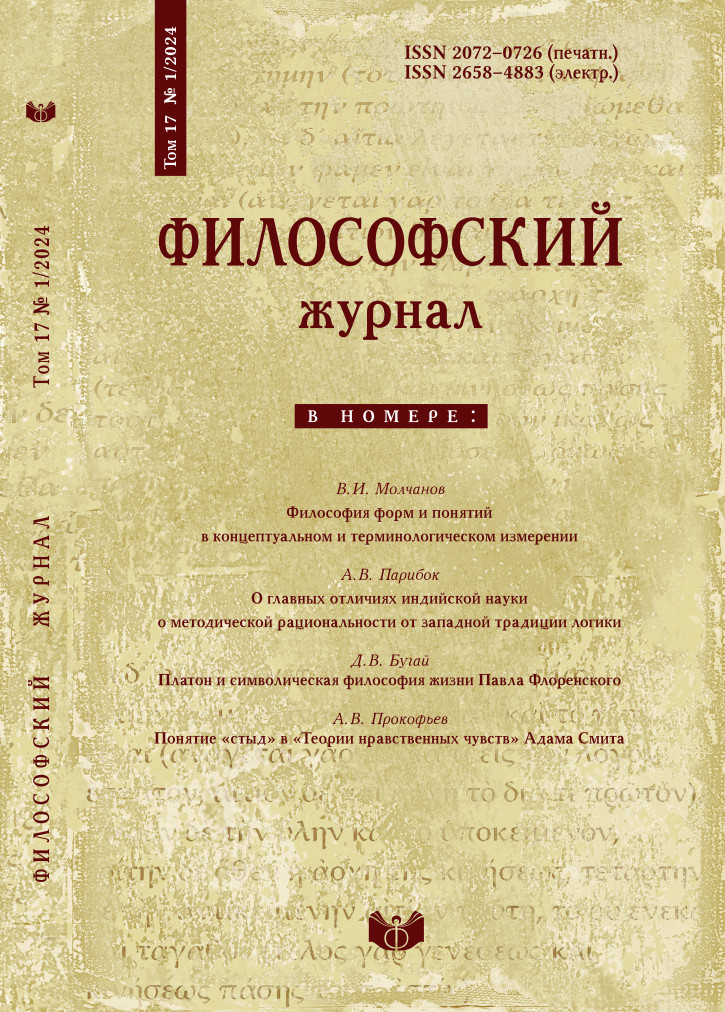Philosophical realism: the pinafore stage of existence
DOI:
https://doi.org/10.21146/2072-0726-2024-17-1-102-122Keywords:
ontology, idealism, realism, transcendental idealism, empirical realism, the critical philosophy, the common sense philosophy, dialectical sports, the doctrine of vijňānavāda, the layers of realityAbstract
In spite of the fact that ideas in line with the world-outlook format of realism (as also those in the format of irrealism) come back already to Antiquity, it was not earlier than from the end of the 18th century that the metaphilosophical concept under discussion has begun to evolve. The initial becoming of the concept of philosophical realism during score of years from the first edition of Kant’s Critique of Pure Reason (1781) to Schelling’s System of Transcendental Idealism (1801) is just being dealt with in this paper. The term came about eighty years later than “idealism” (introduced in 1702 by Leibnitz), and Kant inaugurated it most likely to distance his system from that of Berkeley to whom he was indebted, it seems, still more than to Hume (their congeniality is specified in the article in the mirror of intercultural philosophy, i.e. in both systems, just as in the Buddhist vijňānavāda, our persuasion that we can perceive outer things as existing independently from our mind was regarded as the radical illusion of mind). The author stands up for Friedrich Jacobi by offering specification of the advantages of “the robust realism” over “feigned” Kantian realism. Meanwhile, he suggests also the distinction between the transcendental idealistic doctrine of Kant and realistic potency of his philosophy, which, in his opinion, becomes more intelligible after Hilary Putnam’s theory of realism. In this context the Kantian term “transcendental realism” itself could acquire not negative but mostly affirmative connotations. The author also suggests actualization of Kant’s “realistic capacity” for today’s ontology by highlighting his implicit differentiation of the layers of reality. In contrast, Fichtean and Schellingean dialectical sports with correlations of idealism and realism could be of interest, in the author’s view, only to historians of philosophy.






